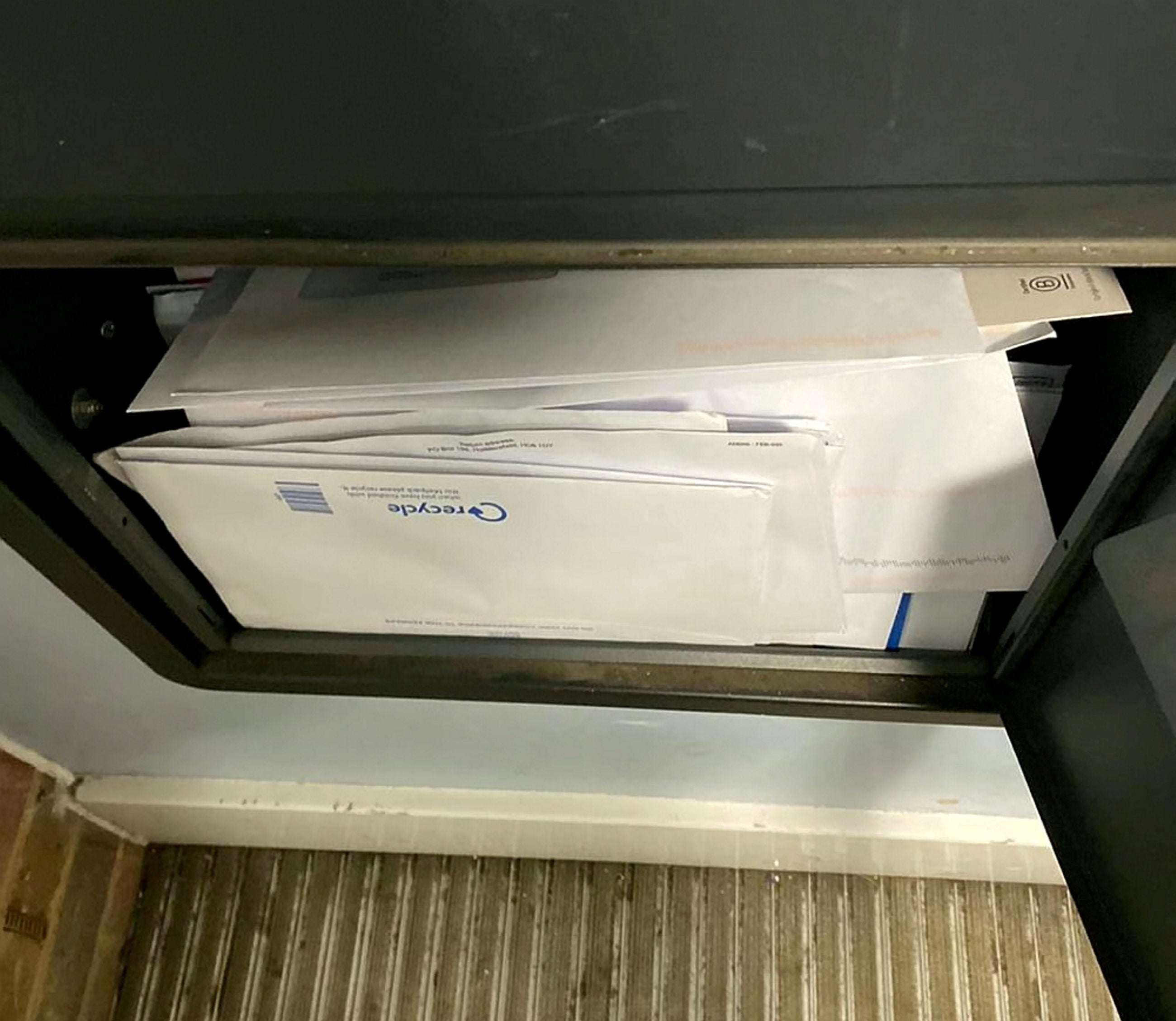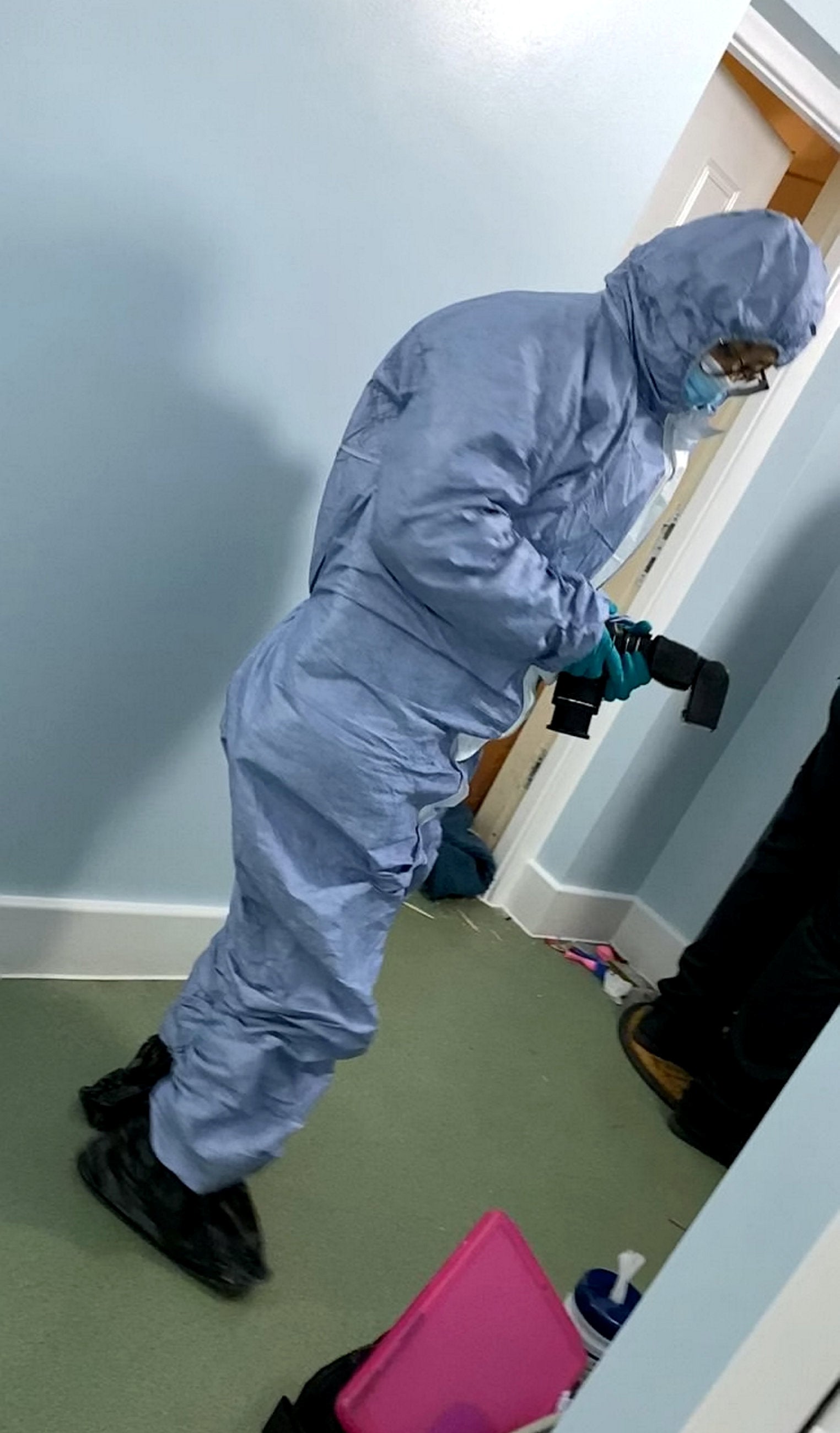
A woman lay dead in her flat for two and a half years before being discovered by police, an inquiry has heard.
Sheila Seleone’s skeletal remains were found in her southeast London home in February.
The 61-year-old probably died at the flat in Peckham in August 2019, a hearing at Southwark Coroner’s Court was told.
Officers broke through the door earlier this year after receiving reports from neighbours concerned for her welfare.
Residents had made several reports to the Peabody housing association, raising concerns about a bad smell, mail building up in her letterbox and not having seen her for some time.
Police visited twice in October 2020 after receiving similar reports, but said they did not notice a bad smell and the officers did not feel there was enough evidence at the time to justify a forced entry.
But officers forced their way inside after returning to the flat on St Mary’s Road in Peckham on 18 February this year.
“Concerns had been raised about the welfare of a woman who lived at the address,” the Metropolitan Police said in a statement afterwards.
Detective Sergeant Scott Fisher spoke to the inquiry about the evening officers forced entry and discovered Ms Seleone’s remains.
“There was a brown substance around her body which must have been a product of decomposition,” he said.
“In the bathroom, there was soiled clothing which was an indication to me of ill health and then further to that there were various medications which an internet search suggested various ailments.”
The officer, who investigated the circumstances of the death, said that he did not believe the death to be suspicious because there had been no sign of forced entry into the property except by the police.
The flat was in an immaculate condition except for the area around the body, he added.

DS Fisher concluded that there had been no robbery or burglary because Ms Seleone’s jewellery and electrical goods were undisturbed and there was no sign of broken bones or trauma on her body.
He added: “In my opinion, she passed around August 2019. The balcony door was open and the heating was switched off which indicated to me warmer months.
“The prescription medicine ended around the summer of 2019. There was a receipt in her handbag for a visit to the shops [in] August 2019. And when we looked in the fridge the shortest shelf life was a dessert that was partially eaten and that expired in August 2019.”
A post-mortem examination was unable to establish a cause of death because of the advanced state of decomposition.

The last person Ms Seleone spoke to was a GP on 14 August 2019 and said she had been wheezing and coughing. She had arranged to come in for a face-to-face meeting the following day but never showed.
Two months earlier she had a colonoscopy as she was suffering from inflammatory bowel disease and Crohn’s disease.
She had been receiving Universal Credit payments and had lived in the flat in Lords Court, Peckham, since 2014, the inquest heard.
When the Met reviewed the actions of the officers who attended the flat in October 2020, their internal system found that one of their controllers incorrectly wrote that Ms Seleone had been seen alive and well.
It also found that the officer who made the first call was only there for eight minutes, and questioned whether that was enough time to make proper enquiries.
Reviewers also felt the officer on the second visit was too vague in her description and relied more on the previous officer’s reports of no smell rather than her own experience.
The coroner, Dr Julian Morris, returned an open conclusion for Ms Seleone’s death as he could not establish the cause.
“Any death is sad but to lie undetected for over two years is difficult to fathom in 2022,” he said.
“The lack of rent payment and non-communication between the three departments and the cut off of the gas supply did not trigger any suspicion that something might be wrong.
“However, I do not consider, on balance, that those actions or inactions had any effect on Ms Seleone’s clinical status or could have saved her life. I consider, on balance, that she was already dead.”
Ashling Fox from Peabody housing association said: “I think it is clear that while procedures were followed successfully, they were followed in a silo. The dots could have been joined up sooner and we could have raised the alarm more quickly.”
Additional reporting by agencies







